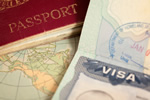Is Malaysia a favourite destination for older expats?

Is Malaysia a favourite destination for older expats?
As other Southeast Asian destinations are losing their appeal for many would-be expats, Malaysia seems to tick all the boxes as regards cost of living, climate, friendly people, natural beauty and stunning coastlines. The country is an intriguing mix of modernity and its present stage of development as a nation and is the richest state in the region due to its oil wealth and tech industries. Another advantage is that it’s still relatively inexpensive, especially outside the major conurbations.
The country’s fascinating history is a draw for expats interested in Asian culture, based as it is on Hinduism with its legends and traditions, all of which can be identified within the traditional Malay beliefs and rituals during its many festivals. The tropical climate pleases incomers from more northern climes, whilst those looking for slightly cooler temperatures can settle happily in the highlands. Expat professionals head for its capital Kuala Lumpur, the state’s major financial and cultural hub, and foodies love Georgetown for it’s unique cuisine and British influences.
Living costs are reasonable outside the major conurbations, and English is widely spoken in many regions, unlike in other Southeast Asian destinations. Incoming British expats on a reconnaissance trip can stay for 90 days without a visa, although the financial requirements for long-term stay can be off-putting. Medical care in the cities is good and crime levels are lower than in several other neighbouring countries, with inflation not a major issue as yet. Due to the country’s multinational traditions, Western incomers are made welcome and political stability is higher than in several other neighbouring states.
Perhaps the only serious negative about Malaysia as an expat destination is its poor air quality. As with other Southeast Asian countries, agriculture is important both as a local crop and for export, with harvests usually occurring twice a year. Sadly, open burning of farmland to prepare for a second or third annual crop is widespread, causing very poor air quality. Laws against the burning are in place but are totally ignored by the majority of the agricultural community.
March and April as well as July to October are the worst months, and are best avoided by older expats whose respiratory systems aren’t in perfect order. Living in a city won’t help, as burning of plastic waste is now endemic and the prevailing winds also bring pollution from Sumatra and other nearby regions.
Related Stories:
- Is Kuwaitization the unintended result of the oil price crash? - July 20, 2020
- Expats in Malaysia still banned from overseas travel - July 17, 2020
- HSBC Asia to cut back on internal expat relocations - July 16, 2020
- Tips on integrating for newly-arrived expats - July 15, 2020
Latest News:
- Tips on a trouble-free relocation as an expat overseas - July 20, 2020
- Expats find peace in the covid-19 refuge of Dahab town - July 20, 2020
- Is Kuwaitization the unintended result of the oil price crash? - July 20, 2020
- Expats unhappy abut changes to Korean points-based visa system - July 17, 2020
- Chiang Mai and Bangkok no longer bargain locations for expats - July 17, 2020
- Expats in Malaysia still banned from overseas travel - July 17, 2020
- Vietnam welcomes expats to its safe, affordable lifestyle - July 16, 2020
- Asian tiger economies reach out to expats in Hong Kong - July 16, 2020
- HSBC Asia to cut back on internal expat relocations - July 16, 2020
- Tips on integrating for newly-arrived expats - July 15, 2020


